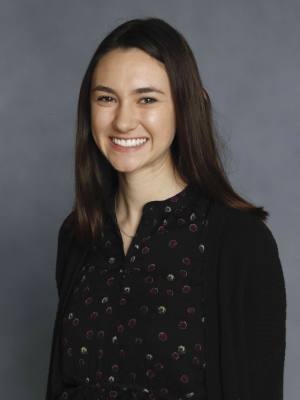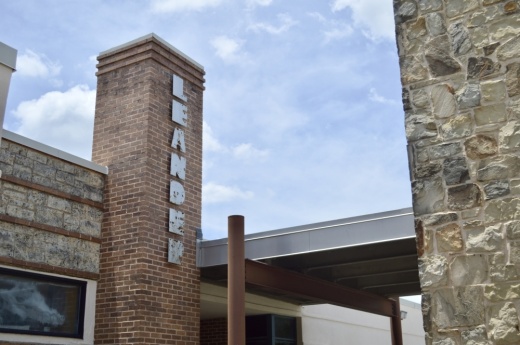Leander ISD voters approved one of three propositions in the Nov. 2 bond election. Proposition A failed by 215 votes and would have funded $727.2 million of school construction and renovations. The $33.3 million Proposition C failed by about 3% and would have funded lighting and sound upgrades for high school performing arts centers.
Proposition B for technology replacement was approved with 52% of the vote. However, part of the proposition, which funded interactive panels to replace projectors, required infrastructure within the failed Proposition A.
New district growth predictions show continuing rapid student growth and increasing housing developments in LISD, and the district is projected to build six elementary schools, one middle school and one high school over the next 10 years. The number of schools needed to meet growth for the next 10 years remains the same from 2020 projections.
During the school board's Nov. 18 meeting, Superintendent Bruce Gearing said the next steps could include district zoning changes, using portables and calling another bond election. LISD will have a voter survey completed that will determine why voters voted how they did, and this information will be presented to the board, possibly at the Dec. 16 meeting.
The deadline to call a May 2022 election is Feb. 18, and the deadline to call a Nov. 2022 election is Aug. 22. But Gearing said the timeline to call a May election would not allow the district to do the community listening it would want before calling a new bond election. He said there would need to be conversations about attendance rezoning, portable locations and the political implications of a May or November bond election.
“We really do need to pay attention to our voting public, and we need to listen to what they want. But if we don’t have the time to do that then that may not be the right timing,” Gearing said. “On the other end of that, we have facilities pressure. We know that these students are coming to the district, and how are we going to respond to that.”
Short-term effects
To meet student growth, the district is expected to open three elementary schools in the next two school years. Elementary school No. 29 did not require funding from the 2021 bond, but elementary schools No. 30 and No. 31 depended on 2021 bond funding.
The failed Proposition A included the construction of four elementary schools. One school cost $5 million in the bond because of project savings from the 2017 bond. Gearing said there could be other ways to fund the remaining need for that school so that construction can proceed.
Either elementary school No. 30 or elementary school No. 31 could be funded with about $5 million in alternative funding, but the other school would remain unfunded at this time, Gearing said.
“Timeline on that is important because we really should be getting under design and planning for construction of both of those elementary schools very soon,” Gearing said. “Otherwise, the opening in 2023 is in jeopardy.”
These schools are planned in the Ranch at Brushy Creek neighborhood in Cedar Park or the Travisso neighborhood in Leander, though sites are not confirmed.
Chief Facilities Officer Jimmy Disler said unless funding is secured by the end of May, opening the second elementary school on time in 2022 will come off the table. If a May 2022 bond is called and passes, the school would only have about 15 months for construction. Disler said 18 to 24 months is needed to build a school with current construction delays.
“If we’re looking for a school in August of '23, we need to be in [the design phase] and about to be under construction right now,” Disler said.
One short-term solution is adding portables to the overcrowded schools that would otherwise be relieved with a new school opening. Elementary school No. 30 would relieve Akin and Rutledge elementary schools. Elementary school No. 31 would relieve Mason Elementary.
Rezoning talks
Board members also discussed the possibility of rezoning the district’s elementary schools to make better use of existing facilities.
Board Member Elexis Grimes said while some schools do not have the capacity in the northern area of the district, some schools in the southern end have remained under capacity.
“I think zoning is a really very real conversation that is going to happen, and it has to happen,” Grimes said.
Board Member Anna Smith said she supports a districtwide rezoning for early childhood, elementary, middle and high school students. She said now is the perfect opportunity.
“I know it’s not going to make people happy, but the voters spoke ... we have facilities that need to be utilized, and I think we [can] get creative," Smith said.
However, Board Member Sade Fashokun said she had concerns about rezoning in north Leander neighborhoods because some students have been rezoned multiple times.
“The continued rezoning is so disruptive,” Fashokun said.
Community disagreement
Between two LISD voter surveys in July and October, the district saw decreases in bond approval and positive impressions of the district.
In July, 47% of survey respondents said they would vote for a bond proposition, though this was not the final bond package called by the board. In October, the number of respondents decreased to 41%, with 46% of voters against Proposition A. This was a 7% increase in survey respondents against the primary bond proposition.
Additionally, there was an 8% increase in respondents who said they have a “negative impression” of LISD. A majority of respondents said this was due to curriculum-related issues, and 23% said they had a negative impression due to COVID-19-related reasons.
Board Member Aaron Johnson said the district saw a “significant deterioration” of the community’s confidence in the district and its leadership over 90 days.
“We didn’t just see the bond election, the bond issue fail. We saw a significant deterioration in about 90 days of confidence in the district and in district leadership,” Johnson said. “This team of eight—I think we have to own that. In a 90-day period, it wasn’t just a concern about the language of the ballot initiative. It was about us. It was about the product that we’re delivering to the community or the perception of that product.”
Board Member Gonzales-Dholakia said she felt that the board got lost in disagreements such as the mask mandate, but the board members’ intentions are to do what is best for students even if they disagree on how to get there.
“We were part of the reason for people to lose faith, and I think that we have the ability to bring a lot of that back in just showing that intentionality [for] our students and our teachers, and our schools,” Gonzales-Dholakia said.





